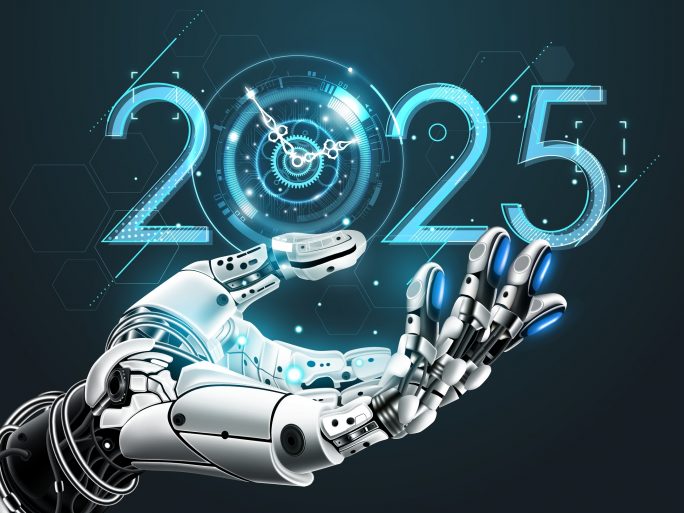Accenture: Unlocking the Innovation Potential of Autonomous AI

AI Trends 2025: Flexible, Generative AI Solutions Replace Rigid Architectures | Humans and AI Form a Positive Learning Loop
The Accenture Technology Vision 2025 explores the transformative impact of autonomous AI in the following areas:
Binary Big Bang: AI as a Development Partner
AI is fundamentally reshaping digital transformation. Thanks to advanced language models, communication between humans and machines is now possible on an unprecedented scale. This shift is having a significant impact on software development. AI-powered development tools are expanding the role of programmers, transforming them into holistic system architects and making software development more accessible to a broader range of users. The trend is moving decisively towards dynamic, AI-driven systems. Flexible, generative AI solutions are supplanting rigid architectures, while intelligent multi-agent systems are taking over complex business processes. This is opening up new areas of application, from travel management to logistics optimisation.
Internationally, confidence at the executive level is high: 77 per cent of managers anticipate that their IT system landscape will be fundamentally reshaped by AI agents. In Germany, the figure is slightly lower at 74 per cent. However, there are stark differences in the pace of adoption. Globally, 40 per cent of executives expect a significant increase in the use of AI agents over the next three years, whereas in Germany, this figure is 10 per cent lower. Interestingly, while 48 per cent of global respondents expect AI to deliver greater flexibility, 56 per cent of German respondents share this view. Similarly, when it comes to expectations for increased innovation, 43 per cent of global managers are optimistic, compared to 54 per cent in Germany. This apparent contradiction suggests that German companies recognise the vast potential of AI systems but remain cautious about their implementation.
The Face of the Future: A New Customer Experience
With its advanced linguistic and generative capabilities, AI is becoming a key designer of the interface between companies and their customers. To stand out in a competitive landscape, brands must leverage AI strategically to deliver exceptional customer experiences. However, 80 per cent of managers acknowledge the challenges posed by this. For example, the widespread use of chatbots and avatars powered by similar large language models risks creating a lack of differentiation in customer interactions. In Germany, this concern is even higher, at 83 per cent.
Nonetheless, the majority remain optimistic: 77 per cent of respondents view highly personalised AI experiences as a promising solution. A ‘digital mastermind’ trained with brand-specific elements—such as culture, values, and terminology—can bring a company’s essence into the digital AI landscape. The potential of AI-driven personalisation is substantial, but its success hinges on customer trust. Globally, 77 per cent of executives emphasise the importance of actively building trust in AI-powered communication, compared to 70 per cent in Germany.
LLMs – Robotics at the Next Level: AI Meets the Physical World
Over the coming years, AI-driven robots will interact far more autonomously with the physical world. Flexible, general-purpose robots will quickly adapt to specialised tasks through learning. For example, the KION Group is collaborating with Accenture and NVIDIA to optimise AI-driven robots for warehouse operations, aiming to process orders more quickly, safely, and cost-effectively. Robots are increasingly developing independent expertise and will interact more directly with humans in the workplace. Globally, 80 per cent of managers believe that natural language communication will foster greater trust and cooperation between humans and machines. However, the outlook in Germany is more reserved: despite its strong industrial automation sector, only 72 per cent of managers share this optimistic view.
New Learning: Collaboration Between Humans and AI
Humans and AI are forming a positive learning loop. The more people use AI, the more powerful it becomes, which, in turn, attracts even more users. Unlike traditional automation systems, this new generation of AI continually evolves, generating increasing value for both individuals and businesses. Globally, 80 per cent of managers consider fostering a positive attitude towards human-AI collaboration and alleviating fears about automation to be a top priority. In Germany, the figure is slightly lower at 74 per cent.
Training plays a pivotal role here. Sixty-eight per cent of international executives view AI training as essential over the next three years, while in Germany, this figure rises to 77 per cent—highlighting the importance placed on skill development in the German market. However, a gap persists between aspiration and action: globally, 47 per cent of managers plan to provide employees with comprehensive access to AI tools, compared to only 32 per cent in Germany.
This hesitation risks slowing the digital transformation of German businesses and, consequently, their competitiveness. Positive examples, such as the ‘Generative AI Scholars Programme’ from Accenture and Stanford Online, illustrate how AI skills can be systematically developed. Research shows that individuals familiar with AI systems are five times more likely to view them positively. This insight should encourage German companies, in particular, to invest in providing employees with greater access to AI systems.